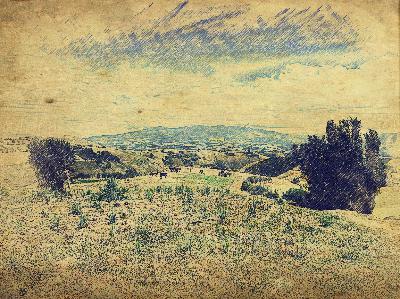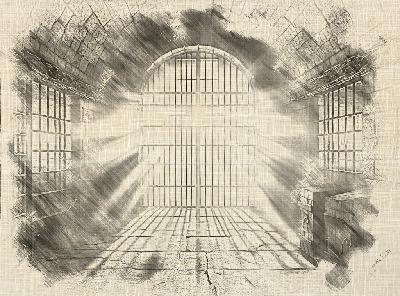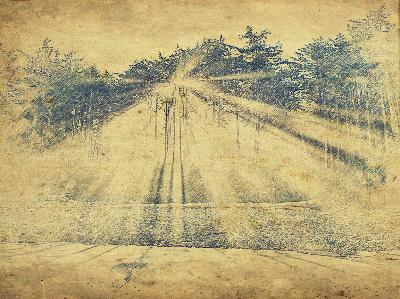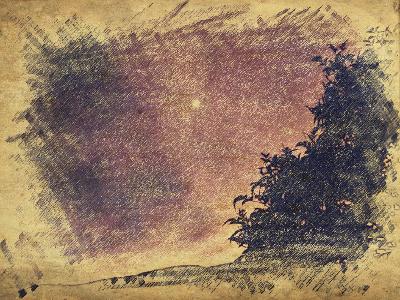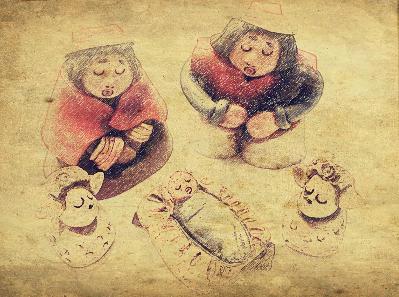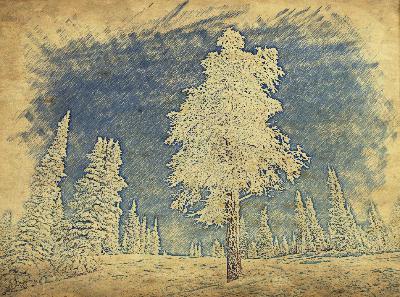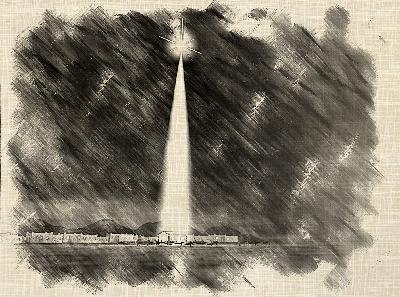O’er The Gloomy Hills: A Journey from Darkness to Light
Description
The Poet’s Pen: William Williams, the Watts of Wales
In the quiet corners of 18th century Wales, where mist-shrouded hills whisper ancient tales, a voice arose that would echo through the annals of Christian hymnody. William Williams, known affectionately as the “Watts of Wales,” penned words that would illuminate the spiritual landscape of generations to come. As a Calvinistic Methodist minister, Williams stood at the crossroads of tradition and reformation, his heart burning with a passion for the Gospel that could not be contained by the stone walls of chapel or church.
It was in this crucible of faith and fervor that “O’er The Gloomy Hills of Darkness” was born, a hymn that would carry the light of Christ to the farthest reaches of the earth. As we delve into the depths of this beloved Christmas hymn, let us prepare our hearts to be stirred, our minds to be challenged, and our souls to be lifted on the wings of Williams’ inspired verse.
The Simeon Connection: A Prophecy Fulfilled
As we stand at the threshold of this hymn’s creation, we must first cast our gaze back to the temple in Jerusalem, where an aged Simeon held the infant Jesus in his arms. His words, recorded in Luke 2:30-32, ring out across the centuries: “For my eyes have seen your salvation that you have prepared in the presence of all peoples, a light for revelation to the Gentiles, and for glory to your people Israel.”
In this moment of divine revelation, Simeon’s prophecy became the seed from which Williams’ hymn would grow. The poet, with his keen spiritual insight, recognized in Simeon’s words a call that transcended time and place—a call to bring the light of Christ to every corner of the earth, no matter how shrouded in darkness.
As we reflect on this connection, we are compelled to ask ourselves: Do we, like Simeon, recognize the salvation prepared for all peoples? Are our eyes open to the light that has dawned, or do we still fumble in the shadows of our own making?
The Gloomy Hills: A World in Darkness
“O’er the gloomy hills of darkness, Cheered by no celestial ray…”
With these opening lines, Williams paints a stark picture of a world bereft of divine light. The “gloomy hills” are not mere geographical features, but a metaphor for the spiritual condition of humanity apart from Christ. In this imagery, we are confronted with the sobering reality of our fallen state, a condition that the Apostle Paul describes in Ephesians 2:1-3: “And you were dead in the trespasses and sins in which you once walked, following the course of this world…”
Yet, in the face of this gloom, Williams does not despair. Instead, he turns his gaze upward, anticipating the dawn of a new day. His words challenge us to examine the hills in our own lives—those areas of darkness that we have perhaps grown accustomed to. What shadows linger in the valleys of our hearts? What gloomy thoughts cloud our vision of God’s glory?
The Sun of Righteousness: Christ’s Dawning Light
“Sun of Righteousness, arising, Bring the bright, the glorious day…”
Here, Williams draws upon the prophet Malachi’s messianic prophecy: “But for you who fear my name, the sun of righteousness shall rise with healing in its wings” (Malachi 4:2). In Christ, this prophecy finds its fulfillment, and Williams’ hymn becomes a clarion call for its universal recognition.
The image of the rising sun dispelling darkness is a powerful one, reminding us of the transformative power of Christ’s coming. Just as the physical sun brings light, warmth, and life to the earth, so too does the Son of God bring spiritual illumination, comfort, and vitality to the souls of humanity.
As we contemplate this verse, let us ask ourselves: Have we truly allowed the Sun of Righteousness to rise in our own lives? Do we bask in His warmth, or do we sometimes retreat to the familiar shadows of our old existence?
The Gospel’s Journey: To Earth’s Remotest Bounds
“Send the gospel To the earth’s remotest bounds.”
In this line, Williams captures the heart of the Great Commission given by Christ in Matthew 28:19-20: “Go therefore and make disciples of all nations…” The hymn becomes not just a song of praise, but a prayer and a call to action. It challenges us to consider our role in spreading the gospel to every corner of the earth.
The phrase “earth’s remotest bounds” speaks to the universal nature of Christ’s salvation. No place is too far, no people too distant, for the reach of God’s love. This sentiment echoes Paul’s words in Romans 10:18 , quoting Psalm 19:4: “Their voice has gone out to all the earth, and their words to the ends of the world.”
As we sing these words, we must ask ourselves: Are we actively participating in sending the gospel? Have we recognized that the “remotest bounds” might be as close as our neighbor’s door or as far as the other side of the world?
Kingdoms in Darkness: The Need for Divine Light
“Kingdoms wide that sit in darkness, Grant them, Lord, the glorious light…”
Williams’ vision expands here, encompassing not just individuals but entire kingdoms—nations and cultures steeped in spiritual darkness. This imagery recalls Isaiah’s prophecy: “The people who walked in darkness have seen a great light; those who dwelt in a land of deep darkness, on them has light shone” (Isaiah 9:2).
The poet’s prayer for these kingdoms is not one of judgment, but of compassion. He asks not for their destruction, but for their illumination. In doing so, he reminds us of God’s heart for all peoples, as expressed in 1 Timothy 2:4: “[God] desires all people to be saved and to come to the knowledge of the truth.”
This verse challenges us to broaden our perspective and deepen our intercessory prayers. Are we concerned only with our own spiritual welfare, or do we lift up entire nations before the throne of grace?
The Morning’s Chase: Light Overcoming Darkness
“And from eastern coast to western May the morning chase the night…”
In this beautiful metaphor, Williams likens the spread of the gospel to the relentless advance of dawn. Just as the morning light chases away the darkness from east to west, so too does the truth of Christ dispel spiritual darkness wherever it is proclaimed.
This image brings to mind the words of John’s gospel: “The light shines in the darkness, and the darkness has not overcome it” (John 1:5). It is a reminder of the inevitability of God’s plan of salvation, a plan that cannot be thwarted by the forces of darkness.
As we reflect on this verse, let us consider: Do we live with the confidence that light will ultimately triumph over darkness? Do we participate in this “chase,” actively bringing the light of Christ into dark places?
Redemption’s Victory: The Price Freely Paid
“And redemption, Freely purchased win the day.”
Here, Williams touches on the heart of the gospel message—redemption through Christ’s sacrifice. The phrase “freely purchased” beautifully encapsulates the paradox of grace: freely given to us, yet purchased at the greatest cost to God.
This echoes Paul’s words in Ephesians 1:7: “In him we have redemption through his blood, the forgiveness of our trespasses, according to the riches of his grace.” The victory of redemption is assured, not because of human effort, but because of the completed work of Christ on the cross.
As we ponder these words, we must ask ourselves: Have we fully embraced the freedom that comes with this redemption? Do we live as those who have been “freely purchased,” or do we still carry the burden of trying to earn our salvation?
The Mighty Gospel: A Force Unstoppable
“Fly abroad, thou mighty gospel, Win and conquer, never cease…”
In this stirring call, Williams personifies the gospel as a mighty force, capable of winning hearts and conquering spiritual strongholds. This imagery aligns with Paul’s declaration in Romans 1:16 : “For I am not ashamed of the gospel, for it is the power of God for salvation to everyone who believes.”
The command to “never cease” speaks to the ongoing nature of the gospel’s work. It is not a one-time event, but a continual process of transformation in individuals and societies. This relentless advance of the gospel reflects the promise of Jesus in Matthew 16:18 : “I will build my church, and the gates of Hades will not overcome it.”
As we sing these words, let us examine our own lives: Do we treat the gospel as the mighty force it is? Are we allowing it to win and conquer areas in our own hearts that we may have previously kept off-limits?
The Expanding Kingdom: Growth and Increase
“May thy lasting, wide dominions Multiply and still increase…”
Here, Williams’ vision expands to encompass the growth of God’s kingdom. This growth is both extensive (wide dominions) and intensive (multiply and increase). It brings to mind Jesus’ parables of the mustard seed and the leaven (Matthew 13:31-33), which illustrate the seemingly small beginnings but unstoppable growth of God’s kingdom.
This verse also echoes the promise given to Abraham in Genesis 22:17 : “I will surely bless you, and I will surely multiply your offspring as the stars of heaven and as the sand that is on the seashore.” In Christ, this promise finds its spiritual fulfillment as people from every nation are brought into God’s family.
As we reflect on these word

